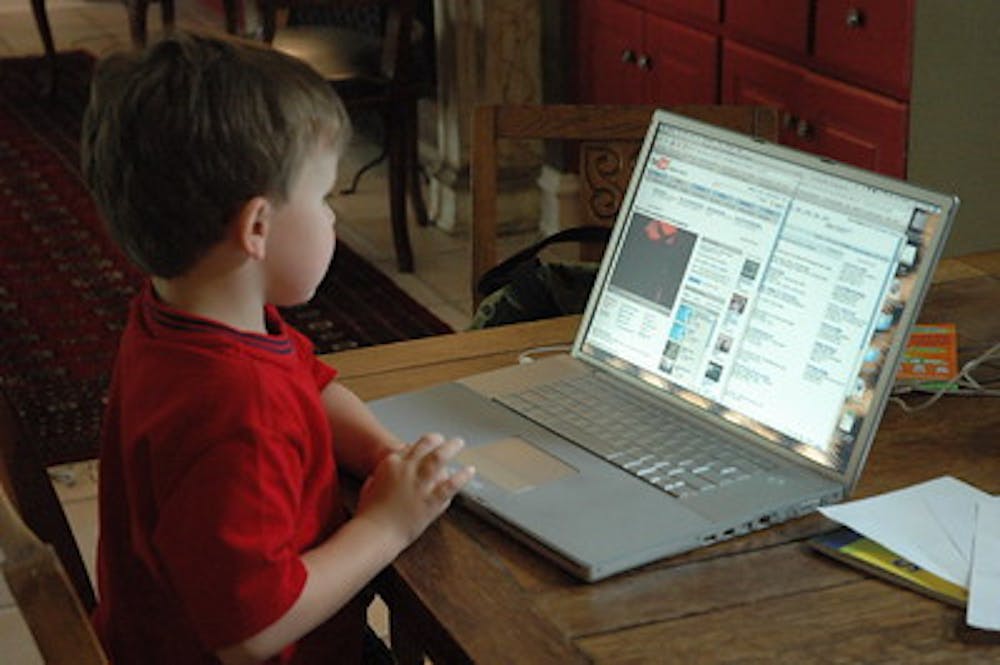Like many other kids who grew up watching YouTube, I wanted to become a YouTuber as a child. I remember hanging out with my family or friends, thinking to myself how funny and entertaining we were — I was so sure that we could make anyone around us laugh. Obviously, I have never started a YouTube channel, made viral videos and became famous.
Still, YouTube held a huge place for me in my childhood and (partially) made me the person I am today — namely, my sense of humor, interests, taste in music. Despite its great impact on millions of children like me, YouTube has a long way to go in strengthening its preventative measures for minors, specifically the children of the creators on the platform.
The dangerous side of family vloggers most recently came into global discussion following a scandal involving YouTuber Ruby Franke, who was more popularly known by her family content channel “8 Passengers.” Franke has recently been charged with child abuse and was arrested in August after authorities found a malnourished child with “open wounds and duct tape on their extremities.” This is proof that YouTube’s child protection policies must be improved.
Hearing about this story gave me anxiety on what else we might be missing behind the scenes of famous YouTuber families. This is not the first time the children of family YouTubers were affected by their parents’ actions. Back in 2017, Michael Martin, owner of the YouTube channel DaddyOFive (famous for the pranks he played on his children), took his “dad jokes” so far he faced severe criticism for his inappropriate pranks.
Part of the responsibility for protecting innocent children on YouTube falls onto our shoulders as viewers. All responsible viewers should report any suspicious activity concerning the well-being of children to either YouTube or a relevant authority. We should keep our eyes open so we can realize if there is a situation where we might need to step in. As long as we recognize that the people we watch on YouTube are as human as us, we can come to the realization that they might make mistakes or engage in illegal activities or that they might be going through a completely different reality than what we are witnessing.
However, this is not enough. YouTube needs to use the global attention that has been brought onto Franke’s case to further develop their child safeguarding methods, especially to protect children outside of what happens on screen. At the end of the day, it is the party that brings those videos to the viewers, so it is responsible for safeguarding minors when it comes to content creation. YouTube has already made several investments to protect the kids using the platform (not only as viewers but also as creators), such as systems where they capture and detect acts of child abuse expeditely and enable their reporting to global law enforcement agencies to resolve the cases. However, there is still a lot more to be done.
YouTube’s current policies in child protection prevent the public broadcast of child abuse on camera, as its community guidelines address this issue. However, what about the events that take place behind the scenes? This was what made Franke’s case unique: the reality off-the-record was far different than what the viewers witnessed in the videos. It is true that it might be impossible for YouTube to detect abuse in these types of situations; we cannot expect YouTube to investigate the lives of every single family YouTuber just because they may or may not be engaging in activities harmful to their children.
However, even with Ruby Franke, there were red flags that were from time to time spotted by the viewers: They noticed when one of her sons stated that he had to sleep on a beanbag for seven months as punishment, or when she left one of her daughters with no food just because she forgot to bring her lunchbox to school that day. If YouTube focuses more on catching these types of red flags and recognizing patterns with the help of informed viewers who are ready to report them, we might be able to combat child abuse on and off camera more successfully.
Buse Koldas is a freshman majoring in Chemical & Biomolecular Engineering from Istanbul, Turkey.





